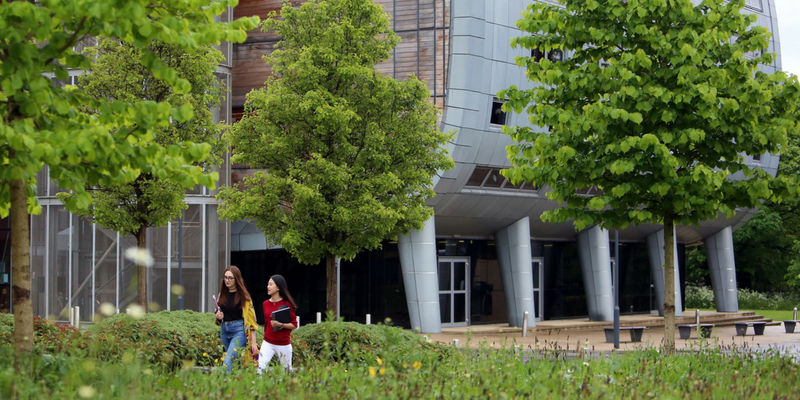Which type of mentoring relationship is right for me?

- Tags
- Mentoring
Applications to the University-wide mentoring scheme are open to colleagues throughout the year, with matching taking place twice a year in May and November. In this article, we explore different types of mentoring relationships, and how each can benefit you.
In simplest terms, mentoring is a learning relationship between individuals where one (the mentor) guides, supports, shares their knowledge, skills, and experience to assist another (the mentee), to achieve what they wish to accomplish.
The term ‘mentor’ has its roots in Greek mythology. Odysseus entrusted his old friend, Mentor, to protect, teach and guide his young son with his experience and wisdom. This is often perceived as a ‘traditional’ mentoring relationship, but there are many different types of mentoring, and each offers unique and enriching development opportunities.
Different types of mentoring relationships:
Peer mentoring
- A relationship between people who are at a similar point in their careers or life, however, both have experience and knowledge in an area that the other is seeking support in.
- It can be a one-on-one relationship or experienced in a group.
- The role of the mentor and mentee is interchangeable, the exchange is mutual, and the relationship creates an environment for co-learning.
Reciprocal mentoring
- Similar to peer mentoring, this is also a mutually beneficial relationship where each participant takes turns being the mentor and the mentee. However, they may be at different levels or grades in the organisation, or at different points in their career trajectory.
- In this relationship they support one another on different aspects, recognising each other’s distributed knowledge and subject matter expertise.
- It addresses the need for leaders to continually learn and stay connected, as well as supporting and sponsoring new talent.
Upward mentoring
- Sometimes referred to as ‘reverse’ mentoring, it turns the ‘traditional’ mentoring relationship on its head.
- The mentor may be at the beginning of their career, or at a lower level in the organisation than the mentee, however, they have the experience and knowledge that the mentee lacks, for example; a generational perspective, technological competencies, knowledge of how the sector works, or who’s who in the organisation.
Group mentoring
- This occurs when mentees with very similar learning needs are all matched with one mentor who will work with them all at the same time.
- Its benefits can be extremely positive, with mentees beginning to replicate the peer mentoring approach as they mentor each other when their experience is greater in a particular area.
Network mentoring
- This approach describes a mentee with more than one mentor, usually when they have diverse learning needs that are unlikely to be met by just one mentor.
Task-specific mentoring
- Occasionally someone may require assistance with a particular task with a focused outcome, for instance, completing a submission for a professional accreditation, applying for a promotion or research funding.
- This individual may wish to see an experienced person just once or twice, to help them with the process.
Informal or off-radar mentoring
- Informal mentoring is very common and often takes place between a mentor who is only a little more experienced than the mentee but someone who shares certain personal characteristics with them.
- This kind of mentoring is not usually recorded or evaluated, due to its informal nature.
- Here the mentor is predominantly acting as a critical friend or a sounding board. You may already be engaging in this activity without it being formally recognised!
Becoming a mentor or mentee
So, if you are thinking about entering a mentoring relationship – either as a mentee or a mentor – do consider the range of approaches. They all have different advantages, and they all provide different experiences.
The University-wide mentoring scheme provides you with the opportunity to experience; peer, reciprocal, and upward mentoring. It is open to all staff and you can register to become a mentor or mentee at any time, however, we only match twice a year in May and November.
We also run a number of workshops for both mentors and mentees. These are also open to all staff, and you can attend even if you are just thinking about engaging in mentoring. These sessions focus on; what to expect, the roles of the mentor/mentee, how to plan for great mentoring conversations, and the tools and techniques which are available for you to explore.
If you have any questions about the mentoring, please email us at peopledev@leeds.ac.uk.
Related News
OD&PL development roundup (3 April 2024)
Explore a roundup of some of the upcoming development opportunities and the latest news from across Organisational Development & Professional Learning (OD&PL). There are lots of new opportunities and some deadlines fast approaching. You can also view our upcoming events and deadlines for programmes and schemes to see all of our upcoming opportunities – we’re constantly adding new opportunities...
New in OD&PL this week
Explore new development opportunities launching this week… It's an action-packed week in OD&PL with a series of new development opportunities launching this week. Connected Leadership Programme Sign up for the Connected Leadership programme, supporting established leaders at Leeds to develop a connected, collaborative and values-led approach with a strong focus on community. It introduces specialist...
Enhance your digital capabilities with the Jisc Discovery Tool
The Jisc Discovery Tool is now available to all colleagues at Leeds, supporting you to understand your digital capabilities and identify development opportunities. Digital capabilities are the skills needed to live, learn and work in a digital world and make best use of the systems and technologies you’ll encounter as a member of staff at...
